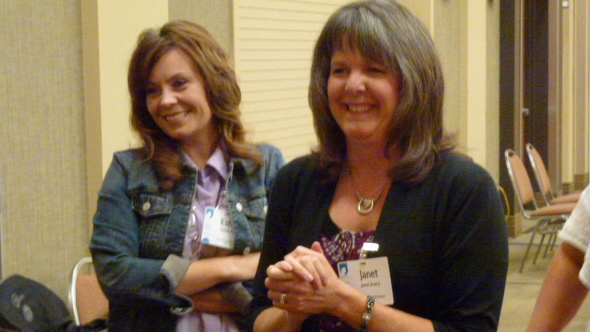What are the most important issues facing Idaho schools? Teacher salaries, go-on rates, test scores?
Maybe — if you ask educators or lawmakers.
But what do students say?

Jerome School District administrators asked students what they think about their school, their teachers and their learning environment. They asked students what matters to them and what they worry about.
“I was surprised at their answers,” Jerome Middle School Principal Ryan Ellsworth said. “My list would have been different.”
Students wanted better toilet paper, juice in the vending machine, Taco Tuesdays and a less restrictive cell phone policy. They also gave more sobering responses. In general, students in higher grades tended to be less interested in school. And a majority of students said teachers did not appear to be having fun in class.
“That shocked the teachers,” Ellsworth said. “That’s one thing the teachers have started working on. They want the kids to know they like their jobs and their subjects can be fun.”
Kids also said they want more engaging, hands-on classroom activities — being “bored in class” was a recurring complaint.
“The results made sense to some teachers, yet some staff are still very leery and don’t understand,” said Janet Avery, Jerome’s curriculum director. “But when it’s coming from kids instead of only administrators, it can have a greater impact.”
Students were asked a variety of questions, including:
- What are the big issues in school?
- What are you worried about?
- Does your teacher care about you?
- Do you see your principal in classes?
- What are your aspirations, and what at school helps you meet them?
Responses were made into posters and staffers voted on those they wanted to learn about and prioritize. Results were posted in the hallways.
“We’re trying to be very open and transparent,” Avery said. “If students have a voice in their own learning, it gives them more ownership of the school and they are happier to be there. They come with an open mind.”
Student focus groups were formed and student leadership teams hear about what teachers and school leaders grapple with.
Ninth-grader Koby Driscoll said he appreciates the opportunity to share his ideas.
“We all end up working together and I’ve noticed it’s a way to improve attitudes,” he said. “Teachers don’t want to do some of the things but we’ve been able to find compromise.”
The middle school relaxed the cell phone policy after students and teachers swapped proposals. Ellsworth added juice in a vending machine and plans to start a Taco Tuesday next school year. Moms shared favorite taco recipes with the cafeteria cooks.
By incorporating student voices, kids may also be encouraged to take more responsibility for their own learning.
In Jerome, administrators asked: “What kind of problems do you hope to solve when you get older or what problems would you like to solve right now?” They administrators and students talked about solutions.
“This is not just doing what the kids ask, but having them at the table so they have a say in some of the policies that happen at the schools,” Avery said. “It’s not a school doing things for students, but instead getting students to help themselves make a better learning environment.”
In the second year, administrators plan to ramp up their efforts.
“Educators have been making all these reform efforts and we’ve left out those who can help reform the most — and that’s the kids,” Avery said. “It’s not a free-for-all, but they are at the table and we can listen and talk about why they want to learn.”
To learn more, Avery suggests the Quaglia Institute for Student Aspirations, where student voice surveys and action plans are available. Avery purchased Russ Quaglia’s “Student Voice: The Instrument of Change” for all staff. Quaglia will conduct professional development in Jerome this summer.

